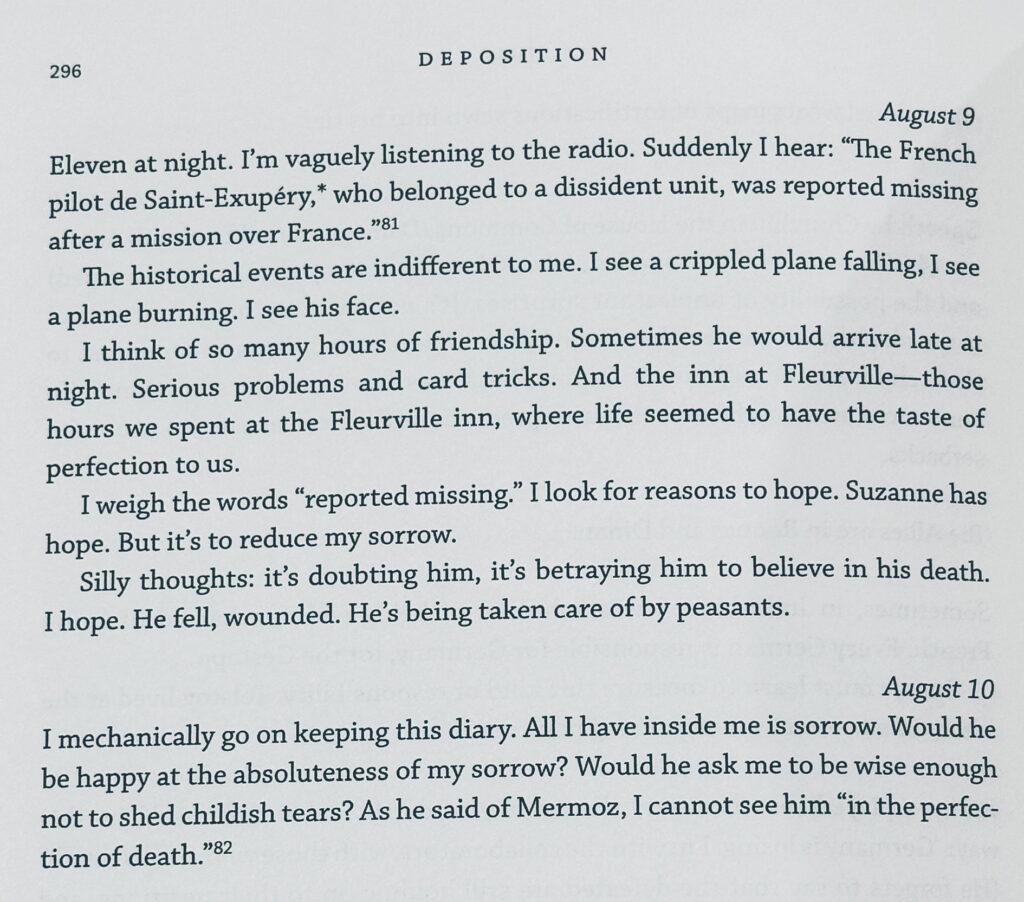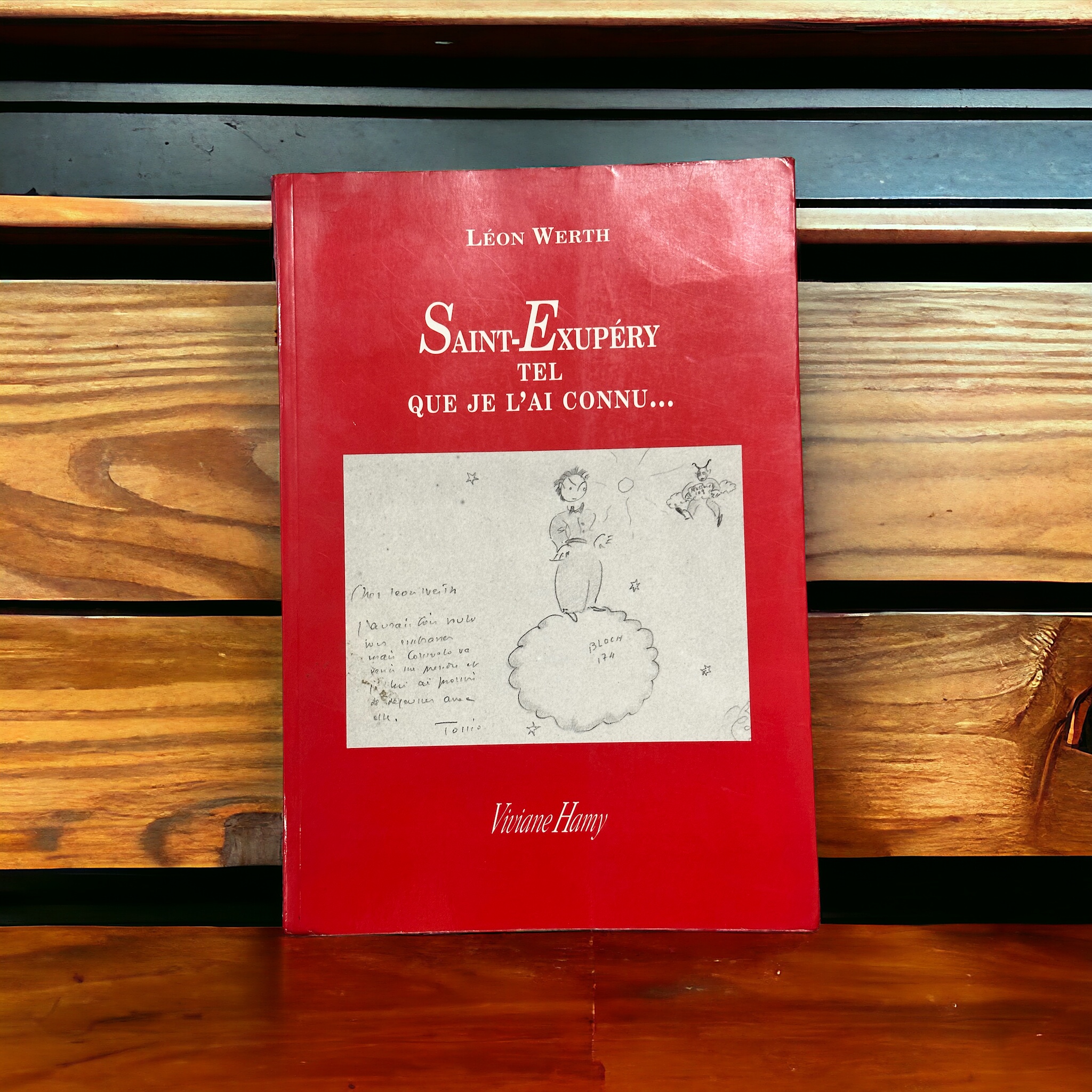Deposition

“Deposition 1940-1944” by Léon Werth is a poignant and incisive account of life in France during its occupation by Nazi Germany in World War II. Léon Werth, a respected French writer, journalist, and critic, and a close friend of Saint-Exupéry, offers a deeply personal and critical diary of his experiences and observations during this dark period in history.
Werth, who was of Jewish descent, lived in the Jura region of France, which was relatively remote and somewhat insulated from the direct impact of the war compared to other areas of France. Despite this relative isolation, Werth was acutely aware of the political and social turmoil engulfing his country and the broader European continent.
This book is not just a diary; it’s a powerful critique of the Vichy regime, the collaborationist government that ruled the unoccupied part of France and worked with Nazi Germany. Werth’s observations cover a range of topics, including the daily hardships faced by ordinary French citizens, the moral and ethical compromises of life under occupation, the persecution of Jews and other marginalized groups, and the resistance movements that emerged in response to Nazi oppression.
On this diary, we can read Werth’s note on August 9th and 10th of 1944, when he just found out that his closest friend Saint-Exupéry was reported missing after a surveillance mission over southern part of France.

Only after the World War 2, Werth found that the last book written by Saint-Exupéry was dedicated to him (+ when he was a little kid).
Werth’s diary was not published until after the war, in 1946, and its firsthand account of life in Vichy France has since been recognized as an important contribution to the literature of World War II and the Holocaust. It offers readers a unique perspective on the period, seen through the eyes of a keen observer who documented the reality of occupation with unflinching honesty and a profound moral sensibility.
Saint-Exupéry — tel que je l’ai connu

In “Saint-Exupéry tel que je l’ai connu” Léon Werth offers a deeply personal and insightful account of his friendship with Antoine de Saint-Exupéry, the author of “The Little Prince.”
The book delves into various aspects of Saint-Exupéry’s life, including his philosophical outlook, his approach to writing, and his passion for aviation. Werth provides anecdotes that highlight Saint-Exupéry’s complex personality, his humanitarian values, and his contemplative nature. Through Werth’s eyes, readers gain insight into the experiences and events that shaped Saint-Exupéry’s literary creations and his views on human dignity, friendship, and the search for meaning in life.
Werth’s narrative not only commemorates his friendship with Saint-Exupéry but also sheds light on the broader cultural and historical contexts in which they lived, particularly the tumultuous periods surrounding the World Wars. This book is valuable not only for its portrayal of an iconic literary figure but also for its exploration of the enduring themes that resonate throughout Saint-Exupéry’s works.


